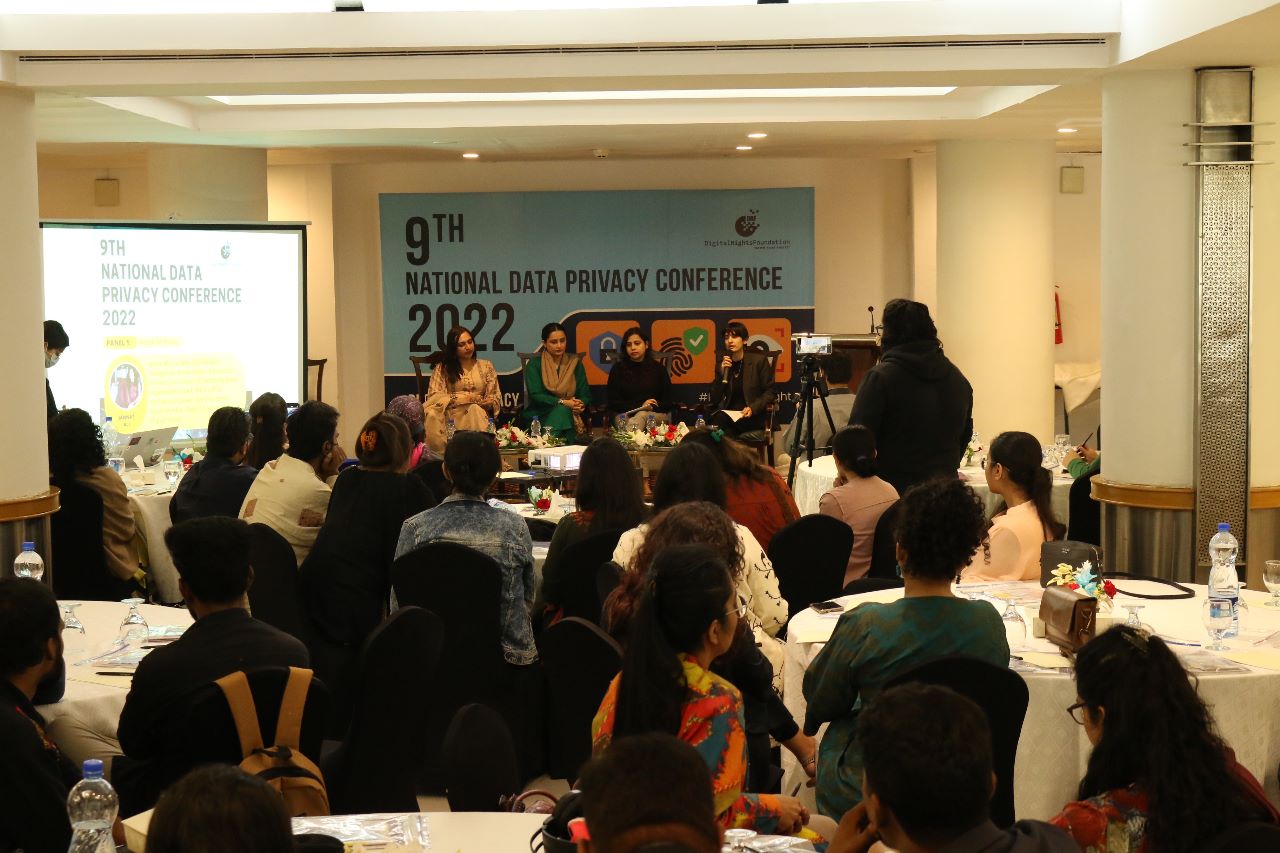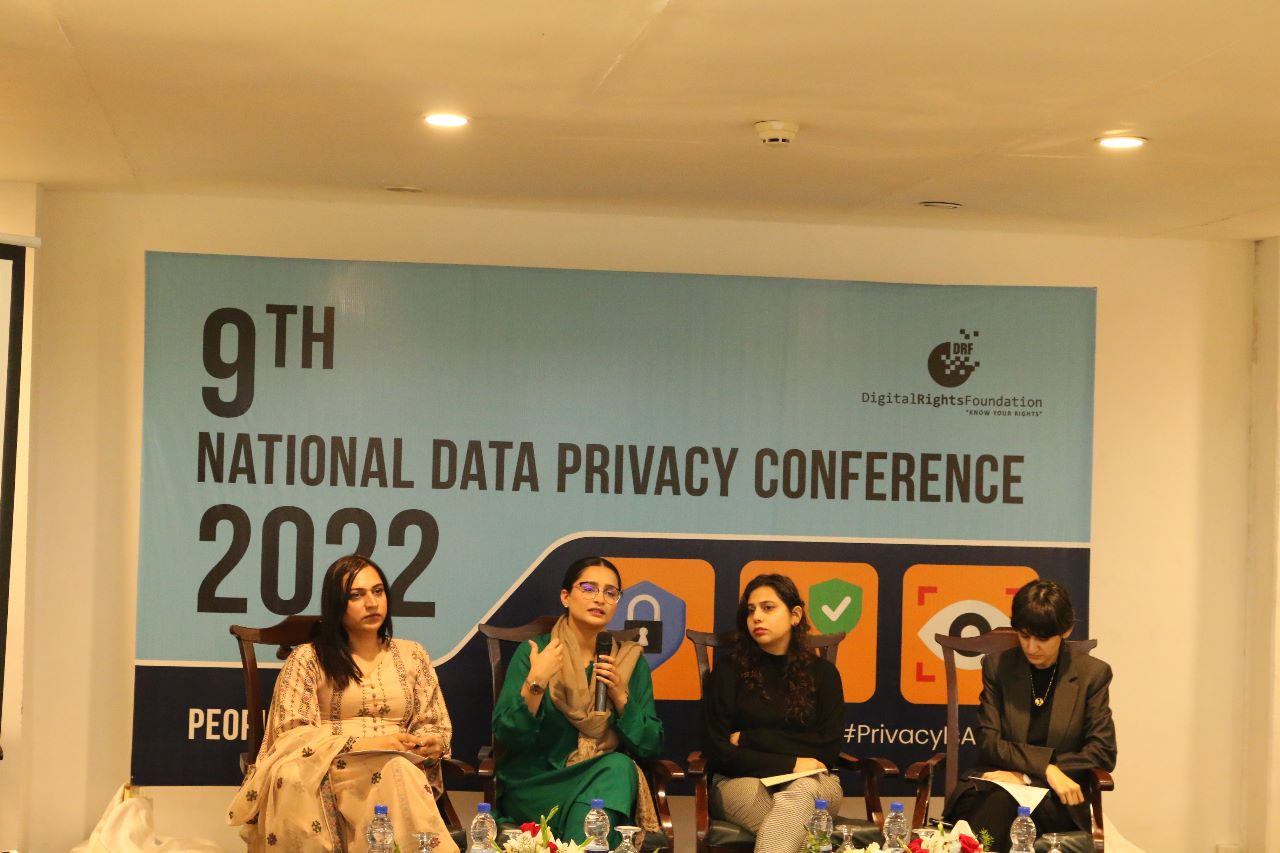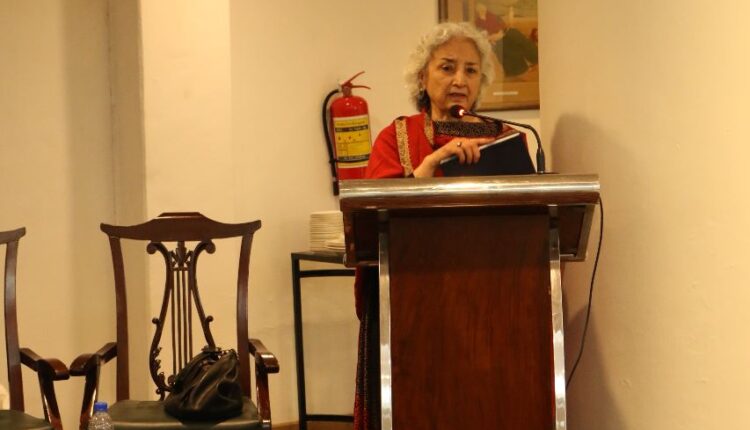Citizens’ Privacy Becomes More Important in light of Rapid Digitization: Speakers
News Desk
Islamabad: Speakers at the National Privacy Conference in Islamabad said, “Article 14 of the Constitution guarantees every citizen’s privacy but it is important to operationalize it through a law that protects our right to privacy.”
The conference was organized by the Digital Rights Foundation (DRF) on Saturday. DRF is a research-based non-profit organization working for the privacy rights of citizen in Pakistan.

The conference brought together experts from different fields to discuss this year’s theme, ‘People & Privacy’, which shed light on the pervasiveness of privacy rights and the violations that we encounter in various facets of society.
DRF Executive Director Nighat Dad noted that the DRF’s annual privacy conference has developed into an institution that organises cutting-edge privacy talks, grounds them in the Pakistani context, and provides a space by gathering the top specialists in the nation.
The Personal Data Protection Bill has not yet been made into law, despite the fact that it is now much more crucial given the post-Covid world’s increasing digitization: LUMS SAHSOL Assistant Professor Angbeen Mirza
LUMS Shaikh Ahmad Hassan School of Law (SAHSOL) Assistant Professor and Legal Academic Angbeen Mirzastated that the Personal Data Protection Bill has not yet been made into law, despite the fact that it is now much more crucial given the post-Covid world’s increasing digitization. The first panel ‘People on Privacy’ included transgender activist Jannat Ali, journalist Amel Ghani and Barrister Jannat Kalyar.
The panel emphasised the necessity to popularise privacy and make it more accessible to the general public as well as the significance of privacy in social movements from the standpoint of the people.

Barrister Jannat Kalyar on the panel said, “With an emphasis on human dignity–which is protected by the Constitution–when people are not treated unfairly because of their class, caste, race, or religion, we must place the human in the entire framework of privacy.”
Jannat Ali highlighted that the Trans community’s privacy will be violated by proposed amendments to the Transgender Persons (Protection of Rights) Act 2018, which would subject them to intrusive medical exams. She urged the audience to “stand with the community at this time, rather than trying to work for us.”
When the legal ramifications of eavesdropping were brought up in the Benazir Bhutto case; we not only failed to ensure robust privacy and data protection legislation, but the growing influence of private actors and the state has made matters far worse: A speaker Saroop
After the panel, a debate took place on the topic: “This house believes that privacy is a western concept.” The panellists’ differing viewpoints underscored the importance of privacy rights in the everyday lives of disadvantaged groups.
According to Saroop, “When the legal ramifications of eavesdropping were brought up in the Benazir Bhutto case; we not only failed to ensure robust privacy and data protection legislation, but the growing influence of private actors and the state has made matters far worse.”

Speaking to decenter the human centric conception of privacy, Todd’s Welfare Society Finance Director Umer Rajpoot also highlighted the ways in which animals need to be recognised as non-human citizens of this country and thus deserving of rights such as privacy.
Mahwari Justice Campaign Co-founder Bushra Mahnoor stated, “To guarantee that individuals are comfortable during flood relief, period dignity should be connected with privacy. But privacy should not hinder us from combating stigmas associated with menstrual cycles.”
National Commission on the Status of Women (NCSW) Former Chairperson Khawar Mumtaz stressed the role that art and performance can play in bringing about societal change, and shifting people’s perceptions toward their privacy rights. Photo Credit: DRF Team

Comments are closed.